MR KLEIN (1976)
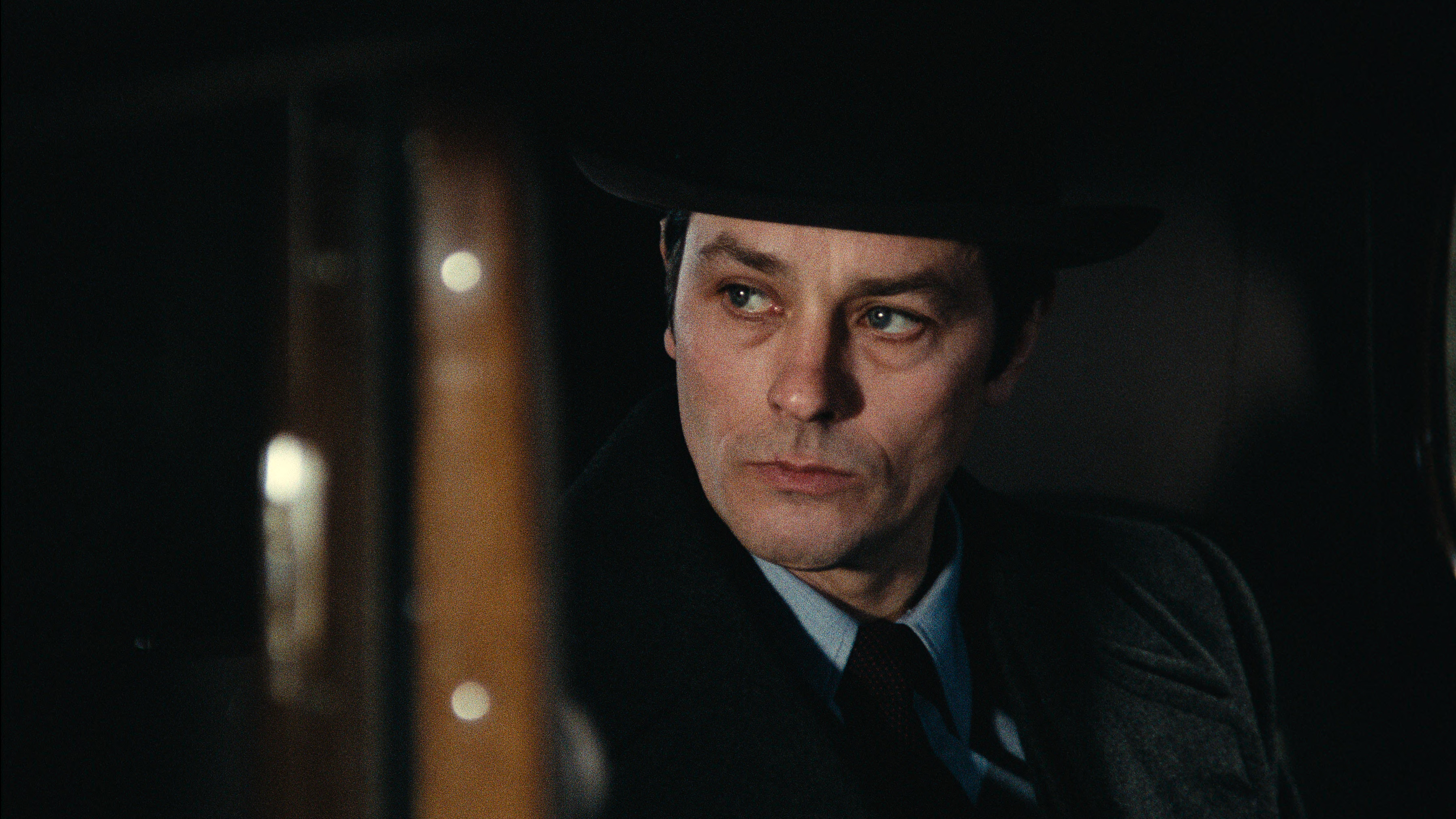
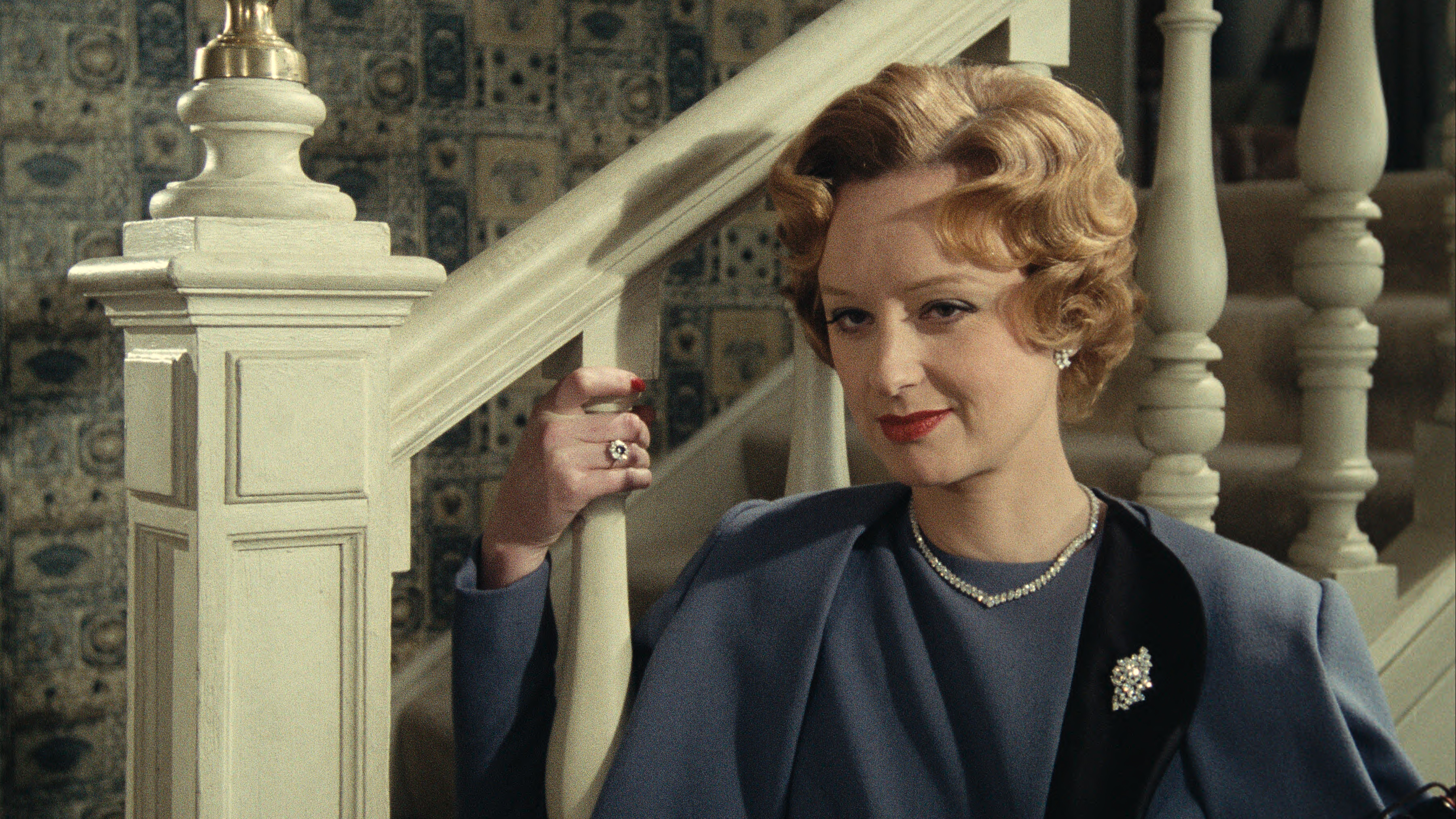
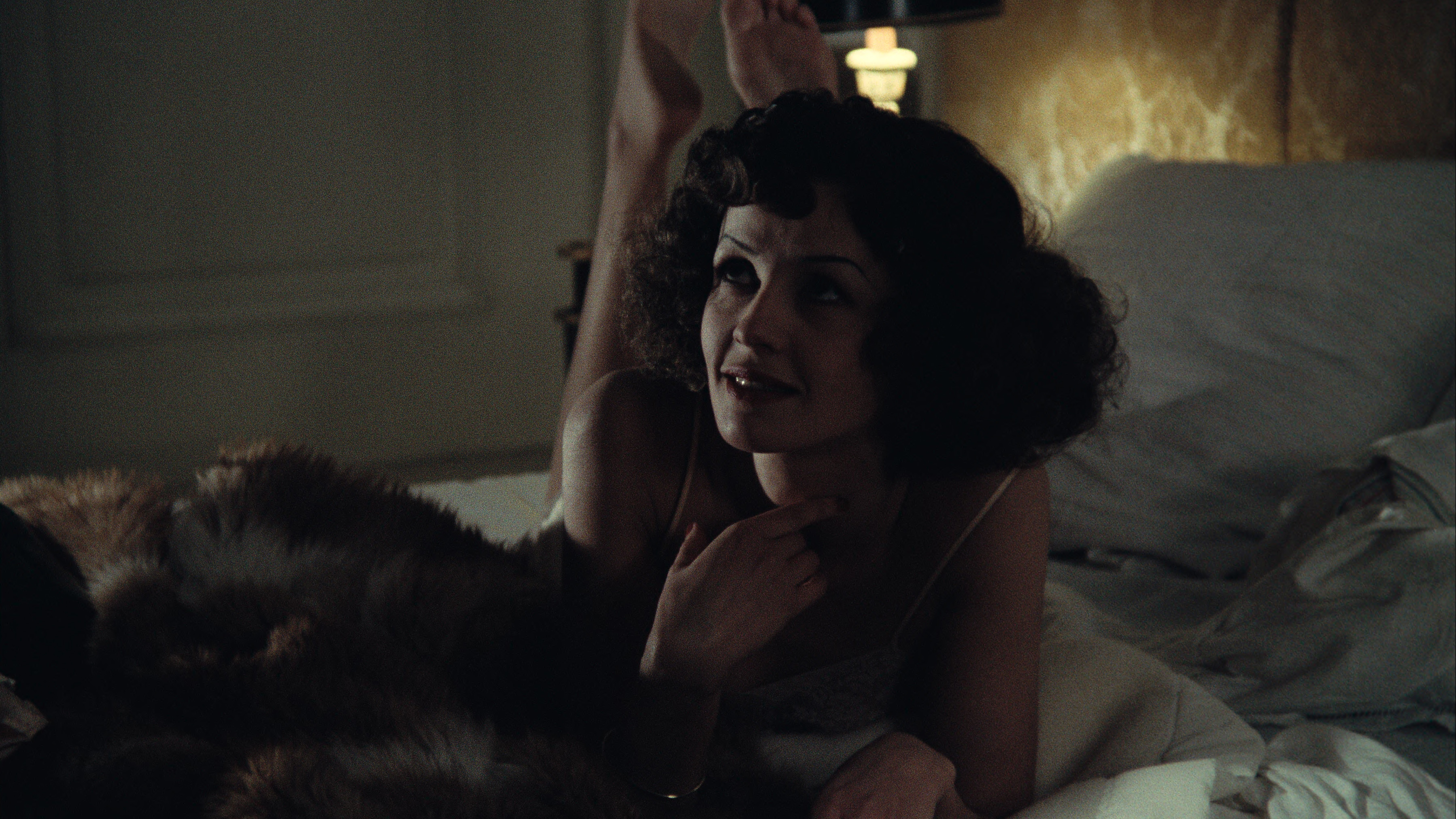
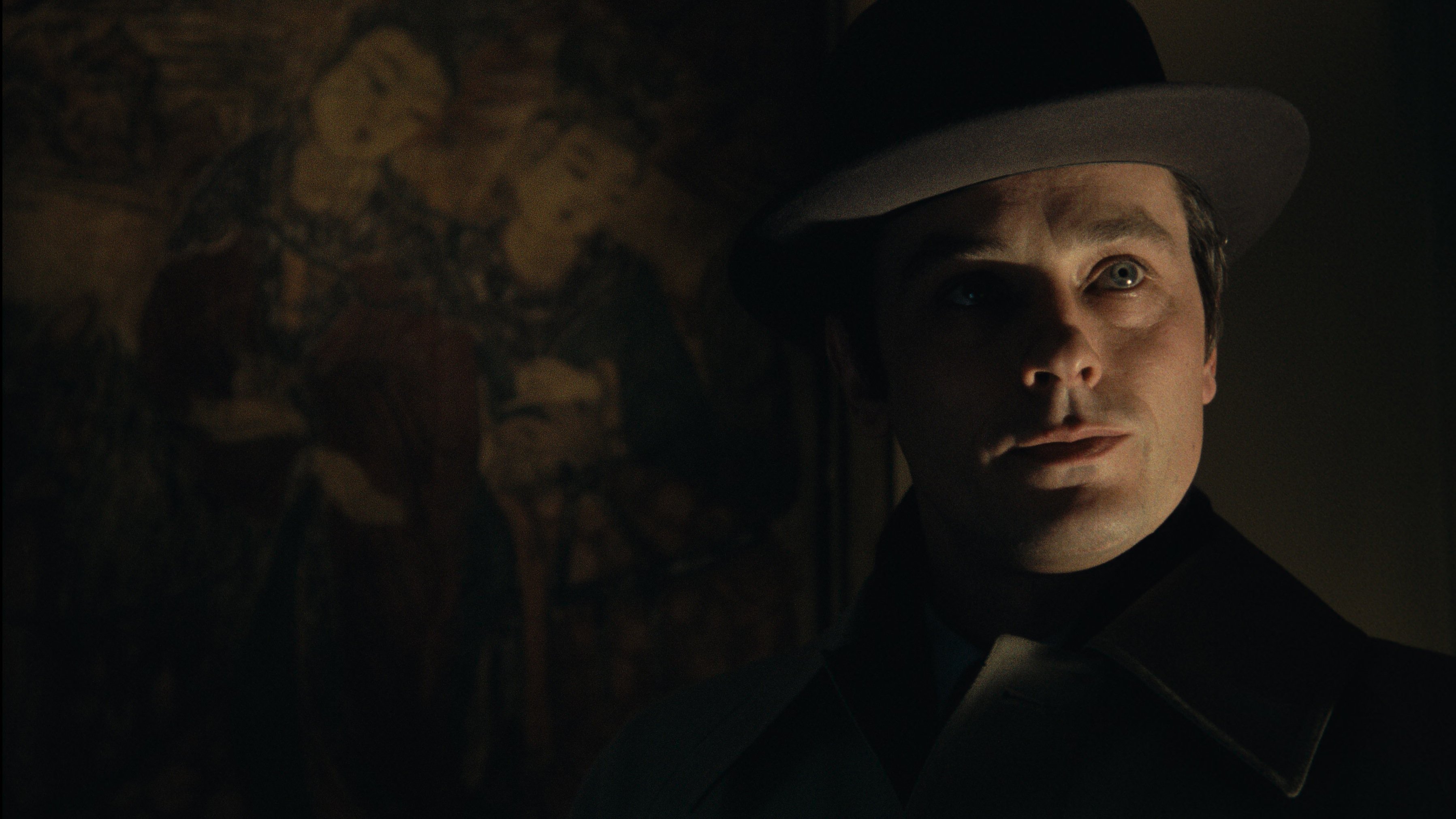
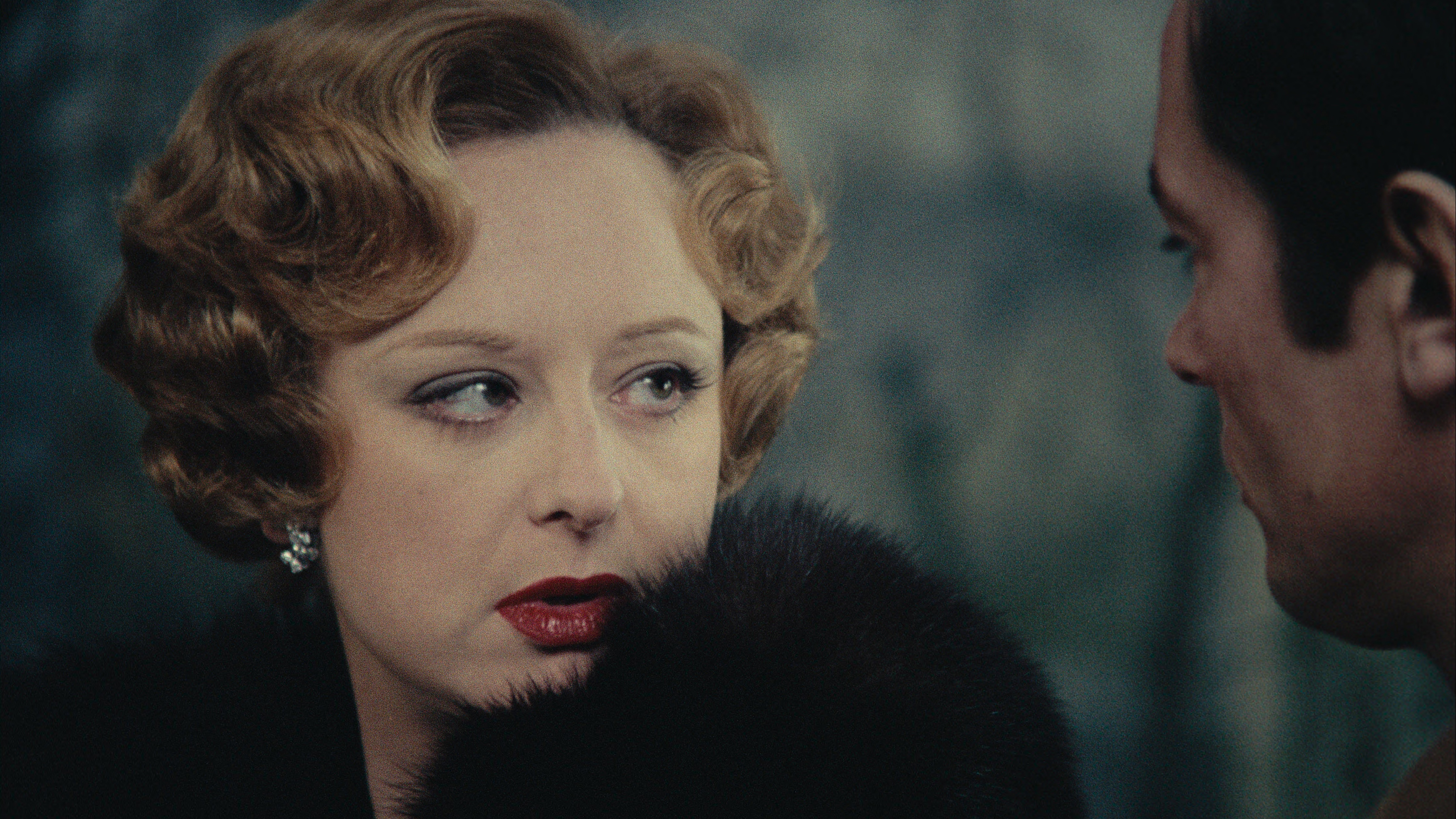
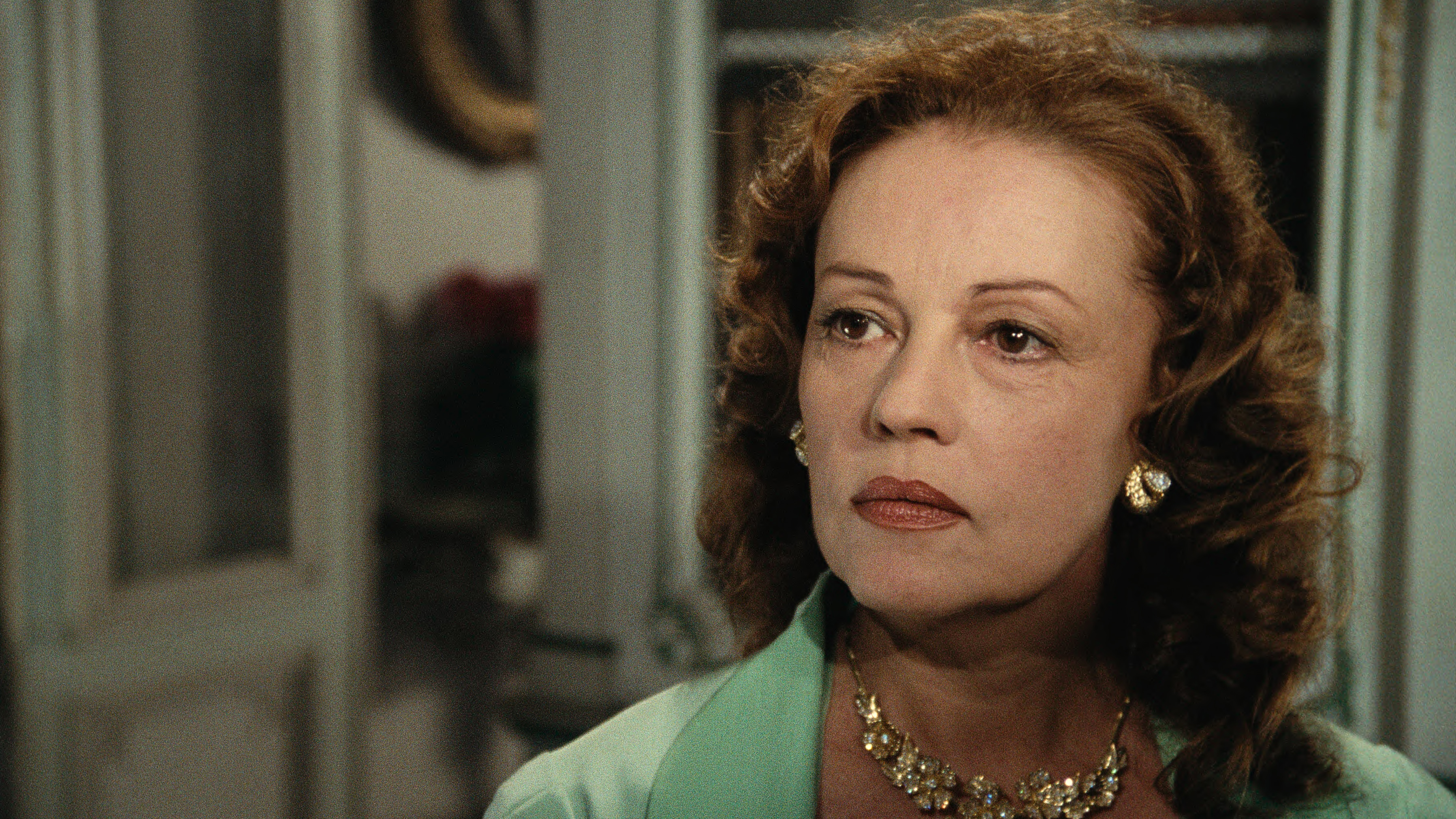
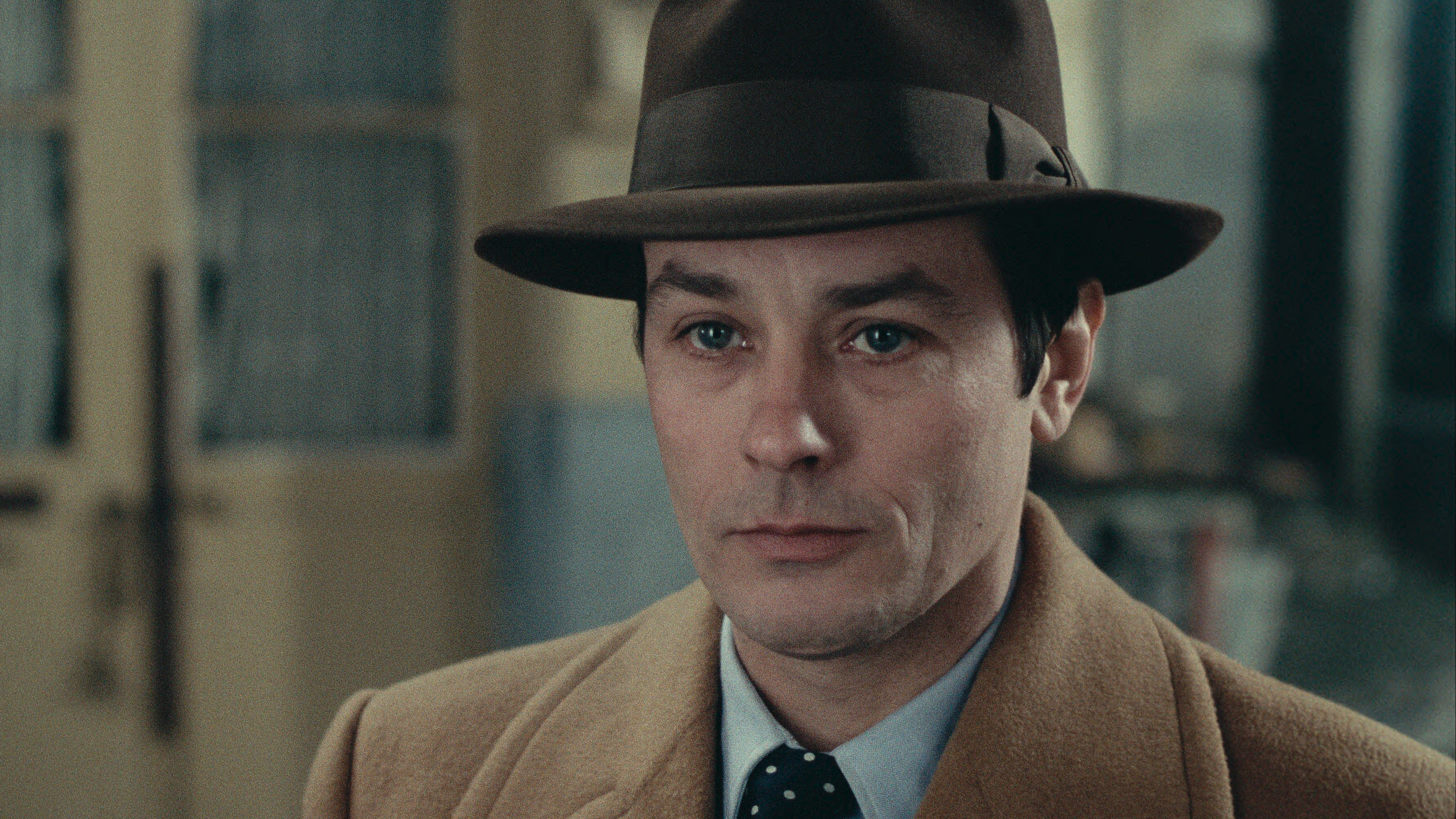
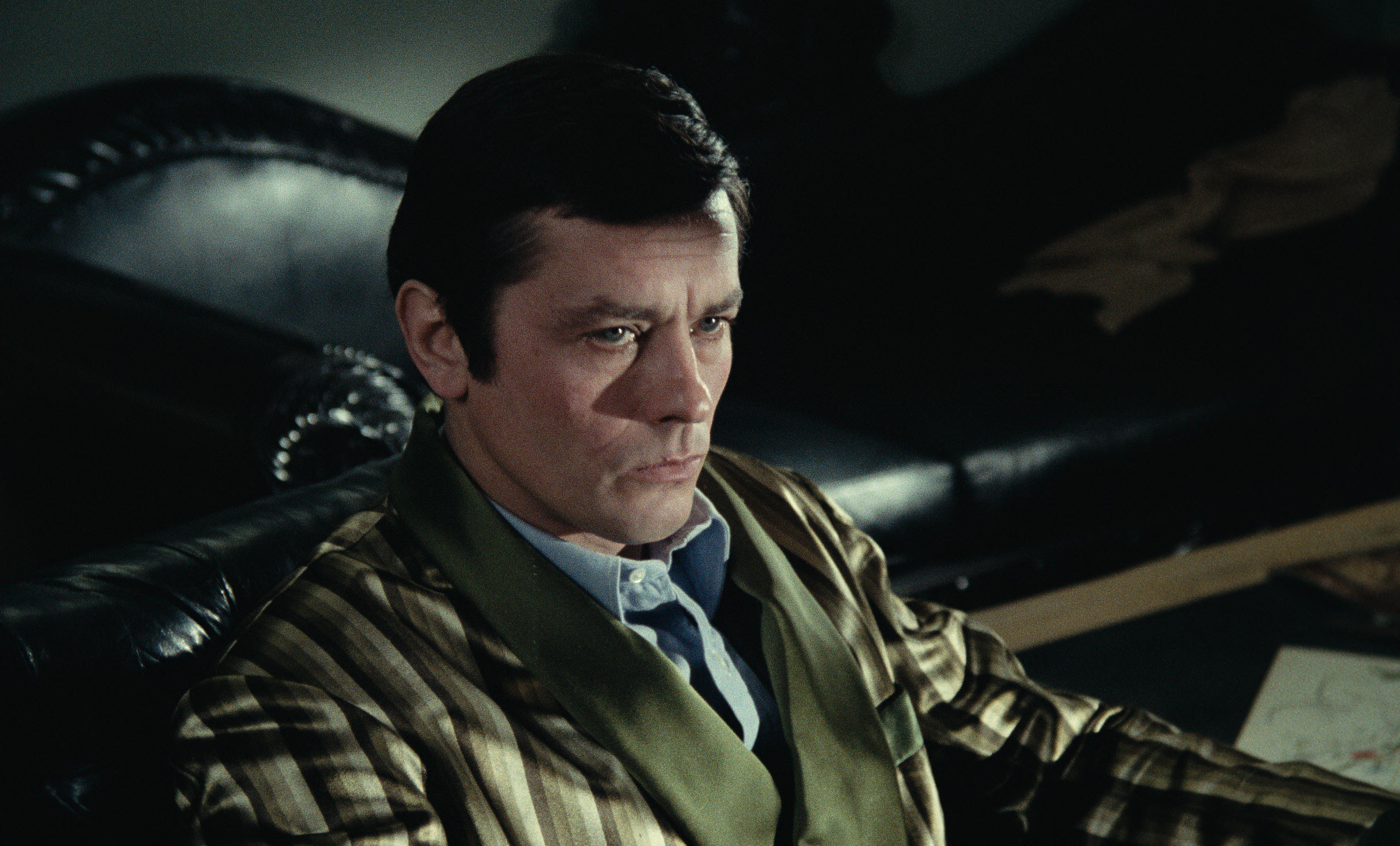
11:15 AM, Thursday April 28
5:15 PM, Sunday May 01
Sunday screening introcuced by John McDonald
Randwick Ritz
Director: Joseph Losey
Country: France
Year: 1976
Runtime: 123 minutes
Rating: M
Language: French/ English Subtitles
TICKETS ⟶
5:15 PM, Sunday May 01
Sunday screening introcuced by John McDonald
Randwick Ritz
Director: Joseph Losey
Country: France
Year: 1976
Runtime: 123 minutes
Rating: M
Language: French/ English Subtitles
TICKETS ⟶
“THIS STORY OF BLURRED IDENTITIES AND CASUAL MORALITY IN GERMAN-OCCUPIED PARIS BENEFITS FROM WHAT MIGHT BE THE BEST PERFORMANCE OF ALAIN DELON’S LONG CAREER.” – LOS ANGELES TIMES
In Nazi-occupied Paris, an art dealer discovers his identity is being confused with another Mr Klein…and this one is Jewish. As he tries to prove who he is and as he searches for his doppelgänger, he begins to realize there is nothing accidental about this confusion.
Behind the mystery at the heart of Mr Klein is the realization that the collaboration between the Nazis and the French in occupied France wasn’t just the unfortunate choices of misguided individuals, but the result of a systematic corruption within the French government.
“A masterpiece of identity crisis – a mesmeric cat-and-mouse played out in dreadful, ever-lengthening shadows.” – Financial Times
Introduced by John McDonald, Film Critic Australian Financial Review, Art Critic Sydney Morning Herald, Curator and Commentator.
Watch The Trailer
In Nazi-occupied Paris, an art dealer discovers his identity is being confused with another Mr Klein…and this one is Jewish. As he tries to prove who he is and as he searches for his doppelgänger, he begins to realize there is nothing accidental about this confusion.
Behind the mystery at the heart of Mr Klein is the realization that the collaboration between the Nazis and the French in occupied France wasn’t just the unfortunate choices of misguided individuals, but the result of a systematic corruption within the French government.
“A masterpiece of identity crisis – a mesmeric cat-and-mouse played out in dreadful, ever-lengthening shadows.” – Financial Times
Introduced by John McDonald, Film Critic Australian Financial Review, Art Critic Sydney Morning Herald, Curator and Commentator.
Watch The Trailer
FILM NOTES
By Mark Pierce
Joseph Losey:
Born in Wisconsin in 1909, by 1953 Losey had directed twelve plays on Broadway, made educational films, made three government documentaries and directed five films in Hollywood. After finishing The Big Night (1951), Losey was told by his attorney that he had been ‘named’ as a Communist. Three days later he left the USA for Europe to direct a film in Italy. After completing the film Imbarco a Mezzanotte/Stranger on the Prowl (1952), after some perambulations around Europe he arrived in London, broke and desperate.
“I was petrified. I had physical attacks. I thought I was going to die…it was just sheer absolute panic, because I had nothing. I had no family: my wife had left me, my child was living in the United States in a boarding school, I had no lover, I had no money, I had no work.”
It took Losey a decade to advance his film-making career to the point where it had left off in the USA. Not until The Servant (1963) was he again able to work on a subject of his own choosing. It was his first collaboration with Harold Pinter and they worked together on two more of his finest films Accident (1967) and The Go-Between (1971).
Late in his life Losey relocated to France and made four films there. Losey read Franco Solinas’s script for Mr. Klein in 1975. In the book “Conversations with Losey” (Michel Ciment, 1985) Losey described how he came to make the film:
“Pure chance. I was supposed to do “A la Recherche du Temps Perdu” when the project was again put off. I went to Italy for a rest. Two people who had originally worked with Cost-Gavras on the project told me about the screenplay and said that Delon was interested in it. I like the idea of working with Alain, and phone him. I asked if he was interested and he replied ‘Yes, if you are.’ So I read the screenplay and instantly liked it. I knew that for one reason or another it was my kind of film. What it was that precisely attracted me, I couldn’t say. I don’t think in those terms. I just knew it was a subject I could build on, that it said things I wanted to say and that Delon was right for the part.”
Mr.Klein premiered in competition at the 1976 Cannes Film Festival. In 1976 it won French Cesars for Best Film, Best Director and Best Production Design (Alexandre Trauner). Alain Delon, DoP Gerry Fisher, and Editors Henri Lanoë and Jean Labussière were nominated for Cesars.
“I was petrified. I had physical attacks. I thought I was going to die…it was just sheer absolute panic, because I had nothing. I had no family: my wife had left me, my child was living in the United States in a boarding school, I had no lover, I had no money, I had no work.”
It took Losey a decade to advance his film-making career to the point where it had left off in the USA. Not until The Servant (1963) was he again able to work on a subject of his own choosing. It was his first collaboration with Harold Pinter and they worked together on two more of his finest films Accident (1967) and The Go-Between (1971).
Late in his life Losey relocated to France and made four films there. Losey read Franco Solinas’s script for Mr. Klein in 1975. In the book “Conversations with Losey” (Michel Ciment, 1985) Losey described how he came to make the film:
“Pure chance. I was supposed to do “A la Recherche du Temps Perdu” when the project was again put off. I went to Italy for a rest. Two people who had originally worked with Cost-Gavras on the project told me about the screenplay and said that Delon was interested in it. I like the idea of working with Alain, and phone him. I asked if he was interested and he replied ‘Yes, if you are.’ So I read the screenplay and instantly liked it. I knew that for one reason or another it was my kind of film. What it was that precisely attracted me, I couldn’t say. I don’t think in those terms. I just knew it was a subject I could build on, that it said things I wanted to say and that Delon was right for the part.”
Mr.Klein premiered in competition at the 1976 Cannes Film Festival. In 1976 it won French Cesars for Best Film, Best Director and Best Production Design (Alexandre Trauner). Alain Delon, DoP Gerry Fisher, and Editors Henri Lanoë and Jean Labussière were nominated for Cesars.
The Film:
Mr Klein may well be the most serious subject which Joseph Losey addressed as a director, whether in his birthplace in the United States or in self-imposed exile in England and Europe.
The political record of Jacques Chirac, former President of France, is marred by a few odd and odious decisions. Nonetheless, Chirac deserves credit for insisting that the French people confront – and commemorate – the forced deportation and murder of Parisian Jews in 1942. In effect, Chirac rubbed France’s collective nose in the complicity which enabled “those days of tears and shame” and the “insult to our past and our traditions”. France, not merely the collaborationist Vichy regime or its lackeys in the police, had “delivered those under its protection to their executioners”.
Paris’ old winter velodrome, the Vel d’Hiver, is now the site of the bleakly ugly Australian Embassy to France. Before Chirac’s speech in 1995, the historical associations had been submerged, under willed amnesia as much as under poured concrete. Losey’s film was made in 1975, mid-way between the deportation and Chirac’s commemoration. More importantly, Mr Klein appeared seven years after Marcel Ophuls’ poignant, pioneering attempt to make the French watch, acknowledge and learn from what they did during the war. Le Chagrin et la Pitié is a more powerful, compelling film than Mr Klein, but Losey opens up more of the queasy, edgy moral terrain which Ophuls exposed. Another eleven years would pass before Louis Malle’s heart-breaking, miniaturist study of collaboration, Au Revoir les Enfants.
Near the beginning of Mr Klein, Alain Delon appears in a gold, silk dressing gown, leaving a lover lolling on his bed to buy a painting cheap in a forced sale. He resembles a smug, glib noble from an Italian villa. At the end, Delon is wearing a shabby overcoat, shuffled off to his death like Sidney Carton in “A Tale of Two Cities”. Intriguingly, the plot which connects those scenes is not really about collaboration, collusion or conspiracy. Delon certainly purchases artworks at cut prices from Jews obliged to sell. He does not, however, betray those clients by passing on their names or pilfering the rest of their collections. In a society consumed by guilt, Mr Klein’s peculiar task is to prove he is not a guilty partner.
In Delon’s career, he has not often played a victim of the legal system. In Borsalino (1970), ably assisted by Jean-Paul Belmondo, he could hold his own against the forces of law and order. In the same year, starring in Le Cercle Rouge, Delon held out against both his criminal accomplices and pursuing police until the last scene. Zorro (1975) and The Black Tulip (1964) offered Delon more chances, in worse films, to defend his honour.
By contrast, the Delon in Mr Klein often looks baffled, blank, vacant or confused. “Klein” means “small” in German, but that is surely too obvious a reference for Losey. In her cameo role, Jeanne Moreau tags Klein as a vulture rather than a falcon. Both bird models, though, seem too dramatic; here we often see a rather affected and dessicated version of Delon.
A case of mistaken identity is the prop of the plot in Mr Klein. A sense of dread, even of impending doom, is sketched in only lightly and slowly. A newspaper is dropped on Klein’s doorstep, a seemingly innocuous mistake which turns out to be equivalent to finding a horse’s head among your sheets. A committee meeting convenes, functionaries install signage on some grandstands, quite flash black limousines careen to and fro along Paris’ streets. None of those moves, all of which foreshadow the climax, is explained at the time. An air of mystery and menace seeps in, much as it does in another French film comparable in some ways, Clouzot’s Le Corbeau (1943).
Instead of figures in a landscape, to borrow the title of a 1970 Losey film, Delon turns into a figure in a labyrinth. Rather than being pursued by a black helicopter, as are the two escapees in the earlier film, Delon is harried and haunted more by his own incompetence than by the Vichy police. Those police officers remain merely querulous and sceptical for so long that a more vigorous search for documents, a train ride to safety or a judicious bribe could have kept them off the track.
Losey rightly insists at the start of his film that “the facts are a matter of history”. Nonetheless, he approaches that history from a quite particular tangent. Guilty of extortion bordering on larceny, but not worse than that, Klein notes unapologetically that his is “just a job”. There the echo seems pointed, with Wehrmacht soldiers maintaining they were “just following orders”.
In a way, the film deals with what Hannah Arendt began to call “the banality of evil”. In this film that expression would refer to bureaucrats filling our forms, policemen dutifully working through a checklist, suspects lacking the imagination or energy to set themselves free, and evil committed collectively, under orders, at someone else’s command. The most graphic and gruesome scene opens the movie. A doctor dispassionately and intrusively examines a naked woman to determine whether she is Jewish, as though that were a normal and acceptable procedure to follow.
The sharp cutting edge of that first scene is not sustained. Jeanne Moreau appears briefly, for a couple of inconsequential exchanges in a chateau, then disappears overseas. Klein himself disappears down various rabbit holes – out to an armaments factory, into a morgue, onto a train, off to Strasbourg – but those digressions make the central plot sag and slow a little too much.
Another treatment of a man defying institutions, orthodoxy and the threat of terrible punishment is Losey’s adaptation of Brecht’s play, Galileo (1975). A better point of reference lies elsewhere: imagine a gifted, thoughtful detective like Maigret investigating Mr Klein. He would have sucked his pipe, taken his time, deployed his troops, then found the truth and exposed Klein’s persecutor. No such luck for Robert Klein.
The political record of Jacques Chirac, former President of France, is marred by a few odd and odious decisions. Nonetheless, Chirac deserves credit for insisting that the French people confront – and commemorate – the forced deportation and murder of Parisian Jews in 1942. In effect, Chirac rubbed France’s collective nose in the complicity which enabled “those days of tears and shame” and the “insult to our past and our traditions”. France, not merely the collaborationist Vichy regime or its lackeys in the police, had “delivered those under its protection to their executioners”.
Paris’ old winter velodrome, the Vel d’Hiver, is now the site of the bleakly ugly Australian Embassy to France. Before Chirac’s speech in 1995, the historical associations had been submerged, under willed amnesia as much as under poured concrete. Losey’s film was made in 1975, mid-way between the deportation and Chirac’s commemoration. More importantly, Mr Klein appeared seven years after Marcel Ophuls’ poignant, pioneering attempt to make the French watch, acknowledge and learn from what they did during the war. Le Chagrin et la Pitié is a more powerful, compelling film than Mr Klein, but Losey opens up more of the queasy, edgy moral terrain which Ophuls exposed. Another eleven years would pass before Louis Malle’s heart-breaking, miniaturist study of collaboration, Au Revoir les Enfants.
Near the beginning of Mr Klein, Alain Delon appears in a gold, silk dressing gown, leaving a lover lolling on his bed to buy a painting cheap in a forced sale. He resembles a smug, glib noble from an Italian villa. At the end, Delon is wearing a shabby overcoat, shuffled off to his death like Sidney Carton in “A Tale of Two Cities”. Intriguingly, the plot which connects those scenes is not really about collaboration, collusion or conspiracy. Delon certainly purchases artworks at cut prices from Jews obliged to sell. He does not, however, betray those clients by passing on their names or pilfering the rest of their collections. In a society consumed by guilt, Mr Klein’s peculiar task is to prove he is not a guilty partner.
In Delon’s career, he has not often played a victim of the legal system. In Borsalino (1970), ably assisted by Jean-Paul Belmondo, he could hold his own against the forces of law and order. In the same year, starring in Le Cercle Rouge, Delon held out against both his criminal accomplices and pursuing police until the last scene. Zorro (1975) and The Black Tulip (1964) offered Delon more chances, in worse films, to defend his honour.
By contrast, the Delon in Mr Klein often looks baffled, blank, vacant or confused. “Klein” means “small” in German, but that is surely too obvious a reference for Losey. In her cameo role, Jeanne Moreau tags Klein as a vulture rather than a falcon. Both bird models, though, seem too dramatic; here we often see a rather affected and dessicated version of Delon.
A case of mistaken identity is the prop of the plot in Mr Klein. A sense of dread, even of impending doom, is sketched in only lightly and slowly. A newspaper is dropped on Klein’s doorstep, a seemingly innocuous mistake which turns out to be equivalent to finding a horse’s head among your sheets. A committee meeting convenes, functionaries install signage on some grandstands, quite flash black limousines careen to and fro along Paris’ streets. None of those moves, all of which foreshadow the climax, is explained at the time. An air of mystery and menace seeps in, much as it does in another French film comparable in some ways, Clouzot’s Le Corbeau (1943).
Instead of figures in a landscape, to borrow the title of a 1970 Losey film, Delon turns into a figure in a labyrinth. Rather than being pursued by a black helicopter, as are the two escapees in the earlier film, Delon is harried and haunted more by his own incompetence than by the Vichy police. Those police officers remain merely querulous and sceptical for so long that a more vigorous search for documents, a train ride to safety or a judicious bribe could have kept them off the track.
Losey rightly insists at the start of his film that “the facts are a matter of history”. Nonetheless, he approaches that history from a quite particular tangent. Guilty of extortion bordering on larceny, but not worse than that, Klein notes unapologetically that his is “just a job”. There the echo seems pointed, with Wehrmacht soldiers maintaining they were “just following orders”.
In a way, the film deals with what Hannah Arendt began to call “the banality of evil”. In this film that expression would refer to bureaucrats filling our forms, policemen dutifully working through a checklist, suspects lacking the imagination or energy to set themselves free, and evil committed collectively, under orders, at someone else’s command. The most graphic and gruesome scene opens the movie. A doctor dispassionately and intrusively examines a naked woman to determine whether she is Jewish, as though that were a normal and acceptable procedure to follow.
The sharp cutting edge of that first scene is not sustained. Jeanne Moreau appears briefly, for a couple of inconsequential exchanges in a chateau, then disappears overseas. Klein himself disappears down various rabbit holes – out to an armaments factory, into a morgue, onto a train, off to Strasbourg – but those digressions make the central plot sag and slow a little too much.
Another treatment of a man defying institutions, orthodoxy and the threat of terrible punishment is Losey’s adaptation of Brecht’s play, Galileo (1975). A better point of reference lies elsewhere: imagine a gifted, thoughtful detective like Maigret investigating Mr Klein. He would have sucked his pipe, taken his time, deployed his troops, then found the truth and exposed Klein’s persecutor. No such luck for Robert Klein.
The Restoration:
The restoration was undertaken by Hiventy with the support of CNC (Centre National du Cinéma). The team decided to make a 4K scan from the original 35mm negative because they noticed that there was a recurring flaw that appeared every 20 images, on the first quarter to the left, likely due to the process of grain reduction during the printing process.
The 4K color grading was made in a digital projection room, in a DaVinci Resolve V15 workstation, aiming to achieve the color result similar to the 35mm projections. To achieve that, a 35mm operating copy was used as a reference during the entire process.
The audio restoration, also made from the 35mm sound negative, took place in a room with properly calibrated equipment, for a movie theater quality standard.
The restoration team paid particular attention to respect the original image texture and grain, resulting in a faithful restoration work to the original film negative.
Credits
Dir: Joseph LOSEY | France, Italy | 1976 | 123 mins | 4K DCP (orig. 35mm) | Colour | 1.66:1 | Mono Sound | French with Eng. subtitles | (M).
Production Companies: Adel Productions, Lira Films, Mondial Televisone Film, Nova Films | Producer: Alain DELON | Script: Franco SOLINAS, Fernando MORANDI, (Costa-GRAVAS, uncredited) | Photography: Gerry FISHER| Editors: Marie CASTRO-VASQUEZ, Henri LANOË, Michèle NENY | Art Direction: Alexandre TRAUNER | Sound: Maurice DAONNEAU, Jean LABUSSIÈRE, Alex PRONT, Federico SAVINA | Music: Egisto MACCHI, Pierre PORTE | Costumes: Colette BAUDOT, Annalisa NASLLI-ROCCA | Special Visual Effects: George IACONNELLI.
Cast: Alain DELON (‘Robert Klein’), Jeanne MOREAU (‘Florence Klein’), Francine BERGÉ (‘Nicole’) | Michael LONSDALE(‘Pierre’) | Michel AUMONT (‘The Prefecture Civil Servant’), Massimo GIROTTI (‘Charles’).
Source: StudioCanal Australia.
Contains scenes which may be upsetting.
The 4K color grading was made in a digital projection room, in a DaVinci Resolve V15 workstation, aiming to achieve the color result similar to the 35mm projections. To achieve that, a 35mm operating copy was used as a reference during the entire process.
The audio restoration, also made from the 35mm sound negative, took place in a room with properly calibrated equipment, for a movie theater quality standard.
The restoration team paid particular attention to respect the original image texture and grain, resulting in a faithful restoration work to the original film negative.
Credits
Dir: Joseph LOSEY | France, Italy | 1976 | 123 mins | 4K DCP (orig. 35mm) | Colour | 1.66:1 | Mono Sound | French with Eng. subtitles | (M).
Production Companies: Adel Productions, Lira Films, Mondial Televisone Film, Nova Films | Producer: Alain DELON | Script: Franco SOLINAS, Fernando MORANDI, (Costa-GRAVAS, uncredited) | Photography: Gerry FISHER| Editors: Marie CASTRO-VASQUEZ, Henri LANOË, Michèle NENY | Art Direction: Alexandre TRAUNER | Sound: Maurice DAONNEAU, Jean LABUSSIÈRE, Alex PRONT, Federico SAVINA | Music: Egisto MACCHI, Pierre PORTE | Costumes: Colette BAUDOT, Annalisa NASLLI-ROCCA | Special Visual Effects: George IACONNELLI.
Cast: Alain DELON (‘Robert Klein’), Jeanne MOREAU (‘Florence Klein’), Francine BERGÉ (‘Nicole’) | Michael LONSDALE(‘Pierre’) | Michel AUMONT (‘The Prefecture Civil Servant’), Massimo GIROTTI (‘Charles’).
Source: StudioCanal Australia.
Contains scenes which may be upsetting.
